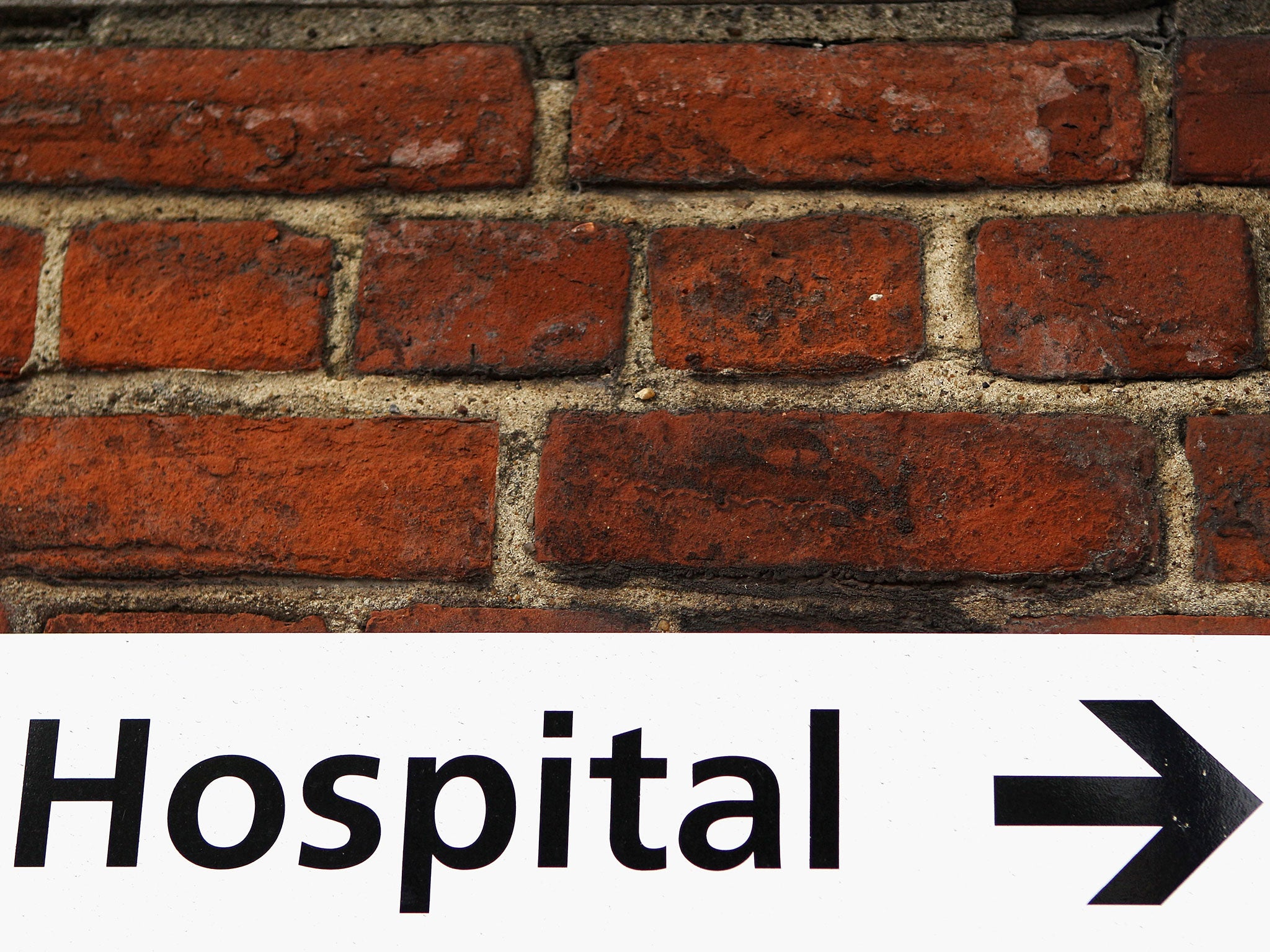Care Quality Commission 'displays alarming lack of attention to detail'
Public Accounts Committee criticses health watchdog for taking too long to produce reports on hospitals

Your support helps us to tell the story
From reproductive rights to climate change to Big Tech, The Independent is on the ground when the story is developing. Whether it's investigating the financials of Elon Musk's pro-Trump PAC or producing our latest documentary, 'The A Word', which shines a light on the American women fighting for reproductive rights, we know how important it is to parse out the facts from the messaging.
At such a critical moment in US history, we need reporters on the ground. Your donation allows us to keep sending journalists to speak to both sides of the story.
The Independent is trusted by Americans across the entire political spectrum. And unlike many other quality news outlets, we choose not to lock Americans out of our reporting and analysis with paywalls. We believe quality journalism should be available to everyone, paid for by those who can afford it.
Your support makes all the difference.Health and care watchdog the Care Quality Commission “is not yet an effective regulator”, MPs have said, criticising inspectors for taking too long to produce reports on hospitals and other services, and sometimes displaying “an alarming lack of attention to detail”.
The Public Accounts Committee (PAC) also said the CQC needed to respond more quickly to patient safety concerns, particularly those raised by whistleblowers.
In their first report on the CQC since 2012, MPs said they were “very concerned” about staff shortages at the inspectorate, which had a vacancy rate of 34 per cent for inspectors in April this year.
The findings will come as a blow for Jeremy Hunt, the Health Secretary, who spearheaded a major shake-up of the CQC two years ago in the wake of the Mid Staffordshire care scandal, which saw new chief inspectors of hospitals, general practice and social care appointed, and a new inspection regime established to great fanfare.
MPs also warned that the inspectorate needed to demonstrate how it would cope with “substantial” planned funding cuts of between 25 and 40 per cent.
Because of staff shortages, it is already failing to meet its targets for inspecting health facilities, the PAC report said. NHS providers who gave evidence said that inspectors also took too long to prepare reports, and that there was great variation in the quality of judgements made about hospitals, GP surgeries and care services.
Meg Hillier MP, chair of the PAC, said: “Six years after being set up the Care Quality Commission is still not fully effective. There’s too often a long gap between inspections and reports being published - and sometimes an alarming lack of attention to detail when reports are being prepared.
“One NHS Foundation Trust told us staff had identified more than 200 errors in a draft Commission report, including data inaccuracies. The fact these errors were picked up offers some reassurance but this is clearly unacceptable from a public body in which taxpayers are placing their trust.”
“If the Commission is to properly fulfil its duty to taxpayers we must see improvements in the way it collects, acts upon and publishes information. At the same time it should set out a coherent plan for managing its new responsibilities.”
However, the report did acknowledge that progress had been made at the CQC since 2012.
David Behan, the inspectorate’s chief executive, said the CQC had “always maintained that there is more we have to do, in particular with regards to improving the timeliness of our reports and inspecting all health and adult social care services.”
“These are not new issues and we have been working hard to improve our performance,” he said. “We have reported on our progress in public every month and we will continue to do so. What is essential is that we do not take any shortcuts, which could compromise the quality of the important work that we do.
"We have surveyed the public and they tell us they are increasingly confident in our new and more rigorous approach to inspection that provides them with better information about the quality and safety of care.
"We are not complacent and are working confidently to continue to improve what we do and how we do it.”
A Department of Health spokesperson said: “We welcome the PAC's recognition of the CQC's significant improvements since 2012 but we know that more needs to be done. We want our NHS to be the safest healthcare system in the world and the CQC is crucial to this, which is why we are fully committed to supporting the CQC to continue to improve and evolve as a regulator.”
Join our commenting forum
Join thought-provoking conversations, follow other Independent readers and see their replies
Comments